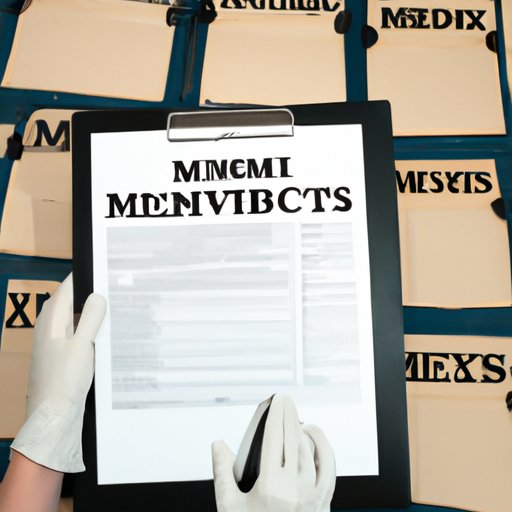Introduction
A medical examiner is a type of doctor who investigates deaths in order to determine the cause and manner of death. They are responsible for performing autopsies, investigating death scenes, determining the time and cause of death, and testifying in court as an expert witness. Becoming a medical examiner requires completing educational and licensing requirements and gaining experience in the field. This article will provide an overview of what it takes to become a medical examiner.
Educational and Licensing Requirements
In order to become a medical examiner, you must first obtain a medical degree from an accredited school. You must then complete a residency program in pathology or forensic pathology. After completing the residency, you must pass the board certification exam given by the American Board of Pathology. Once you have passed the exam, you can apply for a medical examiner’s license in your state.
Job Duties of a Medical Examiner
The primary job duties of a medical examiner include examining autopsies, investigating death scenes, and testifying in court. When examining autopsies, medical examiners must take detailed notes and photographs of the body and organs, collect tissue and fluid samples for laboratory analysis, and perform toxicology tests to determine the presence of drugs and poisons. They must also investigate death scenes in order to gather evidence and determine the circumstances surrounding the death. In addition, medical examiners may be called upon to testify in court as an expert witness regarding their findings.
Gaining Experience
In order to gain experience in the field, medical examiners should consider interning or shadowing experienced professionals. Internships provide an opportunity to observe autopsies, investigate death scenes, and learn from experienced medical examiners. Additionally, shadowing experienced professionals allows medical examiners to gain hands-on experience in the field. Both internships and shadowing provide invaluable experience that can help medical examiners build their skills and knowledge.
Types of Cases Handled
Medical examiners typically handle three types of cases: homicides, accidents, and suicides. Homicides involve the intentional killing of one person by another. Accidents involve unintentional deaths due to falls, motor vehicle collisions, and other causes. Suicides are deaths resulting from self-inflicted injuries. Medical examiners must investigate each type of case thoroughly in order to determine the cause and manner of death.

Keeping Up with Advances in Forensic Science
In order to stay up-to-date with advances in forensic science, medical examiners should attend conferences and read professional journals. Attending conferences provides an opportunity to network with colleagues and learn about new developments in the field. Reading professional journals helps medical examiners stay informed about the latest research and techniques in the field.

Maintaining Accurate Records and Reports
Medical examiners must maintain accurate records and reports in order to ensure their findings are reliable and valid. This includes documenting all evidence collected at death scenes, autopsy results, and laboratory tests. Additionally, medical examiners must work closely with legal teams to ensure all evidence is properly documented and presented in court.
Maintaining Professional Relationships
Medical examiners must also maintain professional relationships with law enforcement officers, coroners, and other medical professionals. Working closely with these individuals helps ensure that all investigations are conducted efficiently and accurately. Additionally, medical examiners must be able to communicate effectively with family members of the deceased in order to answer any questions they may have.
Conclusion
Becoming a medical examiner requires completing educational and licensing requirements and gaining experience in the field. Their job duties include examining autopsies, investigating death scenes, and testifying in court. Medical examiners must also keep up with advances in forensic science, maintain accurate records and reports, and maintain professional relationships with law enforcement officers and other medical professionals. For those interested in pursuing a career as a medical examiner, this article provides an overview of what it takes to become one.
(Note: Is this article not meeting your expectations? Do you have knowledge or insights to share? Unlock new opportunities and expand your reach by joining our authors team. Click Registration to join us and share your expertise with our readers.)
